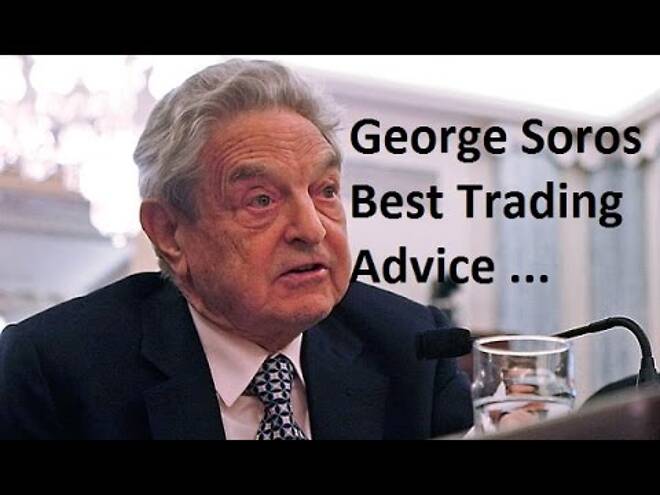Advertisement
Advertisement
When George Soros Speaks Should You Listen?
By:
When George Soros speaks should you listen? George Soros is a self-made billionaire known for his investment savvy and his vast body of philanthropic
When George Soros speaks should you listen? George Soros is a self-made billionaire known for his investment savvy and his vast body of philanthropic work. Soros operates Quantum Fund which is one of the largest private funds in the world. The fund, with Soros at the helm, found massive success through its various iterations, and as of March 2012, Soros, at 81 years of age, was listed as the 22nd richest person in the world, with a net worth estimated at $20 billion. The big question is can a private retail investor follow Mr. Soros lead to make profits alongside.
Soros has slowly moved out of the markets and has been quiet for a long period of time, but recently began making headlines as he returned to speculate that the markets would crash and gold would soar.
Just because George Soros is rich, famous and likes gold, doesn’t mean it’s time to sell. In fact, Jim Cramer is getting sick of hearing from negative billionaires.
“They aren’t the stewards of your capital. They aren’t the be-all and end-all. They are simply people with a worldview that they are sharing with the media, so you shouldn’t be blinded by the billionaire limelight hoping it will shine on you,” the “Mad Money” host said.
Cramer has done his homework on Soros and couldn’t recall a time when he wasn’t negative about pretty much everything. If someone is negative about stocks, it makes sense that they would want to own gold. (CNBC)
Carl Icahn told CNBC on Thursday that bearish bets by fellow billionaire investor George Soros have merit because the stock market has been artificially boosted by prolonged low interest rates.
Some of the values in stocks, “you just have to wonder,” the chairman of Icahn Enterprises told “Squawk Box” in a wide-ranging interview.
Soros has returned to trading after a long hiatus, according to The Wall Street Journal, directing a series of big, bearish investments. The paper reports he sold stocks, and bought gold and shares of gold miners.
According to Bloomberg George Soros, now 85-year-old who broke the Bank of England in 1992, is becoming more involved in day-to-day trading at his family office, taking a series of big, bearish bets.
Soros is best known for netting $1 billion as a hedge fund manager decade ago when he and his then-chief strategist Stan Druckenmiller wagered that the U.K. would be forced to devalue the pound. His predictions haven’t always played out so well.
Soros’s family office made almost $1 billion from November 2012 to February 2013 betting that the Japanese yen would tumble with the election of Prime Minster Shinzo Abe, who pressed the Bank of Japan to introduce additional stimulus measures. A couple of months later, the billionaire warned that moves to expand monetary easing could trigger “an avalanche” in the yen as citizens shift their money.
Soros has been right on many occasions, but his assumptions and trades have not been that risky and when betting billions of dollars he only needs to be a little right to earn huge profits, whereas the average investor could not survive the swings in the market until profit levels were achieved or the costs and spreads and commission by small players would eat up most of the profit.
Let’s take an example of buying gold. If Soros purchased $1 billion dollars of gold at $1225 its price just a week ago and sold it at the end of the week at $1260 he would have earned about 3% or in his case a whopping 30 million dollars if my math is correct. Whereas if you would have purchased one contract for 100oz of gold you would have benefited by $3500 less commissions and costs. But in the interim gold had fallen briefly to $1199, could you have stayed in the market to face that type of risk. The old adage money makes money is sometimes very true.
This is not to say that Soros isn’t correct. Soros is one of the great investors of our times, but there is also a big difference between investors and trading.
About the Author
Barry Normanauthor
Advertisement
